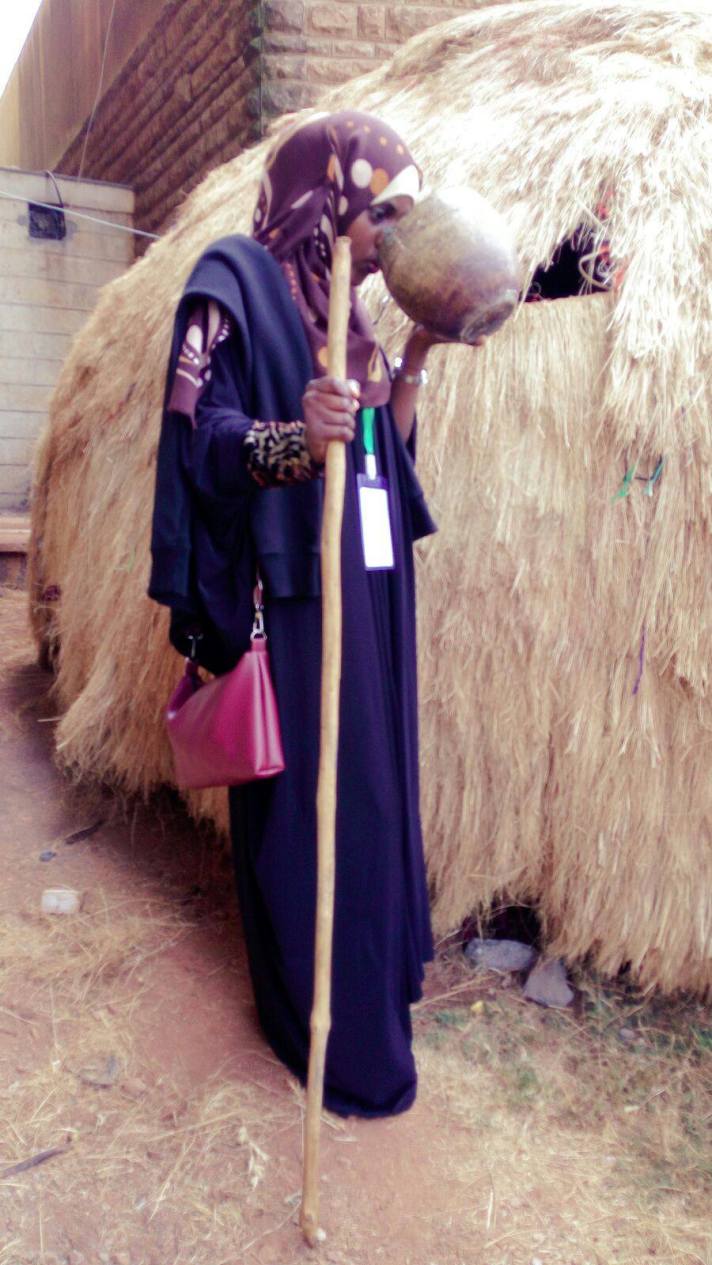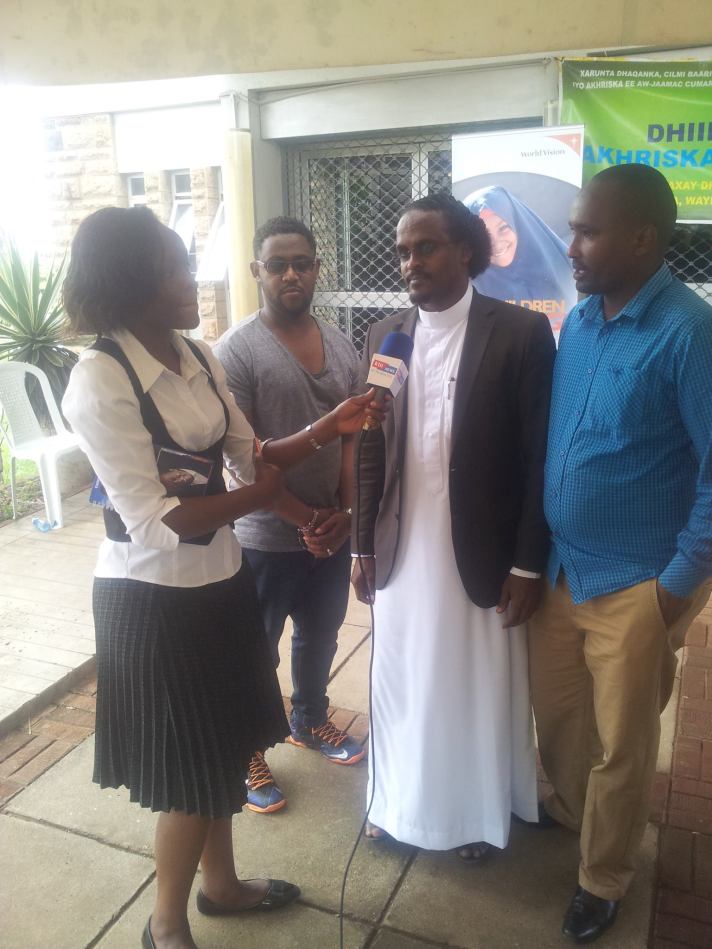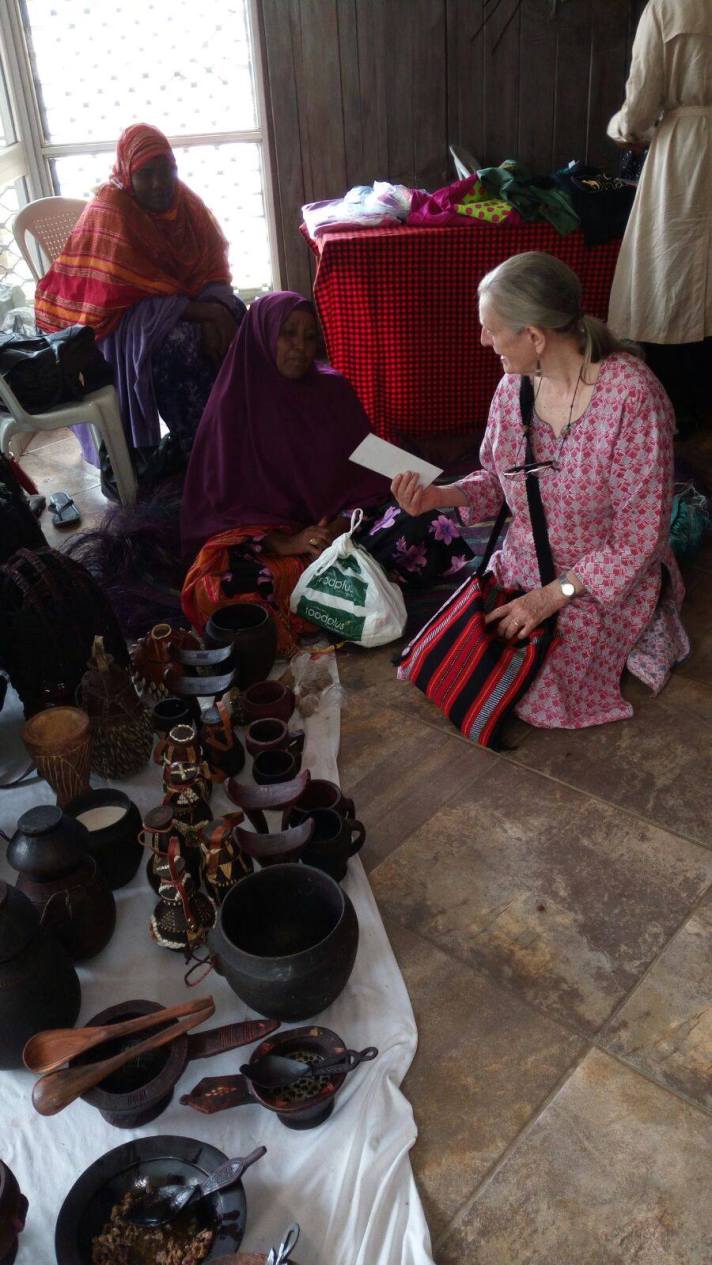“We are like ignorant shepherds living on a site where great civilizations once flourished. The shepherds play with the fragments that pop up to the surface, having no notion of the beautiful structures of which they were once a part,” Allan Bloom wrote in his book, The Closing of the American Mind. And while the author and academician mentions the barrier to long lost cultures, the solution is educating ourselves on it.
But how exactly can we revive our culture?

The Somali Heritage Week took place in Nairobi mid-November this year and not only opened minds of Kenyans who love culture and know of its beauty, it also brought the opportunity to encounter and celebrate it openly.
For many, it was an opportunity and a refreshing time to unearth the not so known culture of the Somali people and have a taste of what may have been tossed into the dustbin, and a time to start reflecting on our similarities as the people of Kenya and appreciate one another.
“As a Somali, the Somali festival accorded me the chance to share and associate with many Somalis and communities from across the World,” says Abdalla Rashid, an activist.

There were many youths who came from as far as Europe to attend the festival to help them interact with different Somalis and other communities from different walks of life. And just like Abdalla, they got the opportunity to know about their culture better, which to them has been unclear.
Abdalla is quick to note that the Somali culture is quite unique in its own way and different from other African cultures, a fact that he is proud of.
Muna Ismail, a communication student in Nairobi, strongly feels that the festival was long overdue. The fact that this was the first time such a festival was being held in Kenya especially since Somalis both from Kenya and Somalia live here, nonetheless, relieved that it finally happened.
“It is really sad that the Somali community has been part of Kenya since independence yet not a single activity reflecting its culture has ever taken place. Like you will not see forums like this type and I cannot stress enough the impact activities like this can help in finding solutions for extremism within the region,” Muna laments. “But it is great that it at least happened and a start towards the right direction,” she adds.
Muna thinks many people are interested to take part in such festivals and would love the idea of holding it on annual basis so that it brings the Somali culture to the limelight. “The minute the festival was shared on social media, it went viral. Everybody started sharing and talking about it. The festival has a promising future and I would love to see it done often,” she says.
The festival, besides being a chance to introduce the Somali culture, was also an opportunity to speak about the Somali issues in Kenya today and far afield. It created a safe space where people shared their ideas and opinions on topical issues that the Somalis are facing. Extremism and radicalisation of the youth by terror outfits, discriminations of the Somalis by the other Kenyan communities, identity and many other pressing issues were largely discussed during the festival.
The issue of identity was and is always a problem for the Somalis living in Kenya and the festival saw many Somalis mostly of Kenyan origin discussing it with mixed feelings. Some are always against the phrase ‘Somali-Kenyan’ and would either prefer being called ‘Kenyan’ or ‘Somalian.’
It is a situation that has the Somali community in Kenyan between a rock and a hard place because some of them cannot tell their exact identity.
“There are two things people are confusing; Ethnicity and nationality. Ethnically we are Somalis and nationally we are Kenyans. I think that is where the confusion is,” Abdullahi Bash, a journalist and analyst says.
For Muna, it is good to accept who you are, and is saddened by the fact that the other Kenyans do not accept the Somali community as Kenyans and view them as outsiders. “However, being a Kenyan should not out shadow the fact that you are Somali ethnically. At the day though, we are still not all accepted as Kenyans by our brothers and sisters. And that is why you hear about the phrase ‘Kenyan-Somali. I don’t think that phrase would exist if we were fully accepted as Kenyans because you will not hear of a Kenyan Kikuyu or a Kenyan Luo or something like that. We are all Kenyans of different, yet vibrant and rich ethnic backgrounds,” she notes.
To most in Kenya, distinguishing between Somalis of Kenyan origin and Somalis from Somalia is a problem because of the similarities in everything.
“When the Somalis from Somalia came to Kenya fleeing conflict, they had no legal documents and couldn’t assimilate with other Kenyans because of language barrier and not indulging in each others cultures and roots. A lot of Kenyan communities do not know the difference between a Somali from Somalia and a Somali from Garissa, Wajir or even Mandera,” Abdullahi says.
According to Abdullahi, the Somalis from Somalia are bold and do everything with hope and enthusiasm hence very successful despite being stateless. “The Somalis from Somalia are risk takers,” he says.
Mr Bash also points out the angle of ethnical inclination where Somalis from Somalia interact with those North Eastern Province because of their ethnic relation. “You will see an Ogaden from Somalia related to an Ogaden from Garissa and Someone from Somalia related to another from Mandera or Wajir.
So the interaction among the Somalis has taken that inclination of whom do you belong to? Do you belong to Garissa people, Mandera or Wajir? But they are one and the same people.
This Kenyan-Somali and Somali-Somali thing is a confusion of identity. People are confused. Do you give allegiance to the people you are identified with or the country that you feel you belong to and yet is oppressing you?” he poses with a concerned face.
Abdullahi believes that the Somali Heritage Week extravaganza was a start for the Somali people to share their culture with other diverse communities in Kenya. “Everybody was happy about it. It was a historic moment for us and other communities will see the other side of Somalis. That Somalis are people with rich culture and heritage. It exposed the other narrative that Somalis are not as bad as they are perceived. They are lively, jovial and entrepreneurial. Mr Bash suggests that the Somali Heritage week be taken to other places other than Nairobi in the near future. “I think we need to share our widely rich culture and way of life,” he concludes.

I originally did the story for Warya Post.http://www.waryapost.com/the-identity-crisis-of-somalis-in-kenya/